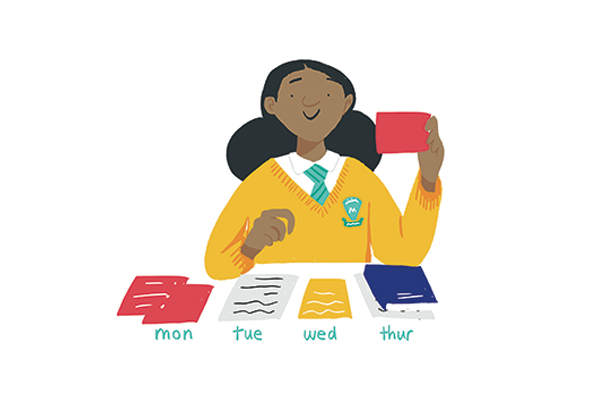For kids, the new session is really their new year. It’s their chance to take healthy learning habits from the last 12 months with them – and leave old ones behind. If they’ve had a troubled relationship with their studies before – whether due to a lack of confidence, fear of failure, test anxiety, or socio-political issues such as the recent pandemic and now the recent unrest and protest across the countries – that doesn’t have to define the rest of their time at school.
We recently had a chat with a workplace mental wellbeing provider, Sarah Kalu; a Medical Student and Mental Health Professional in training from Lagos State College of Medicine and Co-Founder of Protostar Initiative. We met her fo for her advice on helping your kids of EduPoint develop a healthy relationship with their studies.
Her expert tips include;
1. Find what works for the kids
The first and most important thing to note is that there’s no one-size-fits-all approach to effective studying. With the pressure of resits, mocks and final exams further down the line looming, it’s easy for them to get distracted by what others are doing, or by the latest solution that promises to speed up the process and improve the results. Everyone has different skillsets and ways of learning, so ultimately it’s about finding out what works for them, this might take a little experimentation.

2. Make screen time healthy screen time
Reducing hours spent on social media is a great step in the right direction. Not only is it a distraction from the task at hand, but it can also create psychological challenges. Remind your teens that people post versions of their best selves on social media. It’s all too easy to compare ourselves on a bad day to our friends at their best. For many teens, lockdown increased their passive screen time, and this year the news and information have been more invasive than usual. Throw in the pressure of upcoming exams into the mix and it’s totally expectable to experience greater levels of stress. Another important thing to remind them of is that this period of stress won’t last forever.

71% of teachers feel overuse of social media negatively affects teens’ mental health
3. Avoid studying too late
While pressures are more intense and more things are vying for our thoughts and attention, it’s extra important to remember the basics. Let’s start with sticking to a good sleep routine. This can be difficult since our schedules have been uprooted. But avoiding studying too late, limiting screen time, trying not to nap during the day, and setting time to unwind before bed will all help. Similarly, drinking plenty of water and eating well will give their brains the calories they need to perform. Crucially, we need to strike a balance.
4. Create a routine (with treats included)
Organize a schedule that doesn’t feel daunting. Factor in plenty of time for breaks, chatting to friends, and reward – whether that’s Netflix or a 30-minute window for video games. They should continue to invest in the areas of life from which they get that sense of fulfillment and accomplishment – any hobbies or sports they’re into.

For teens, finding a healthy routine they can stick to is key
5. Remind them to be kind to themselves
This leads to an important broader point: being kind to themselves. Help them to set realistic expectations and remember the end goal – the reason they’re sitting the exams in the first place. Encourage your children to chat openly about their concerns with their friends, teachers, and yourself. Parents should remind their kids that education is important, but your love for them isn’t contingent on high grades.
Another great way to boost your teen’s confidence is by giving them the dedicated support of a one-to-one online tutor. At EduPoint, most of our tutors are from top universities with the relevant Educational qualifications and certifications.
So they are just a few years ahead and can easily relate to everything they’re going through. 86% of students say their tutor boosted their confidence in class, and they make an average whole grade’s improvement in a term’s worth of lessons. You can book a call or have a browse and message a tutor to set up a free meeting, and meet as many as you like until you find the perfect match for your child.


Leave a reply